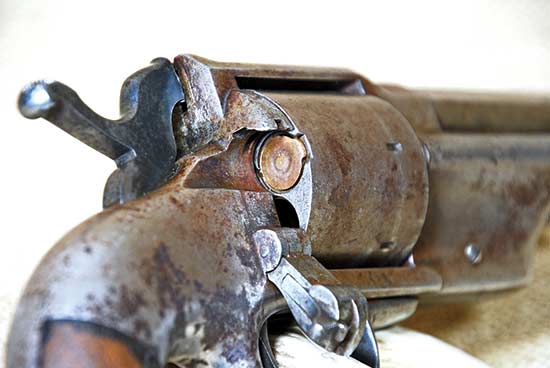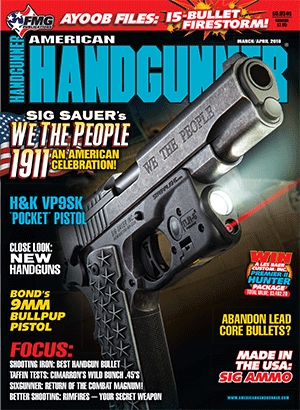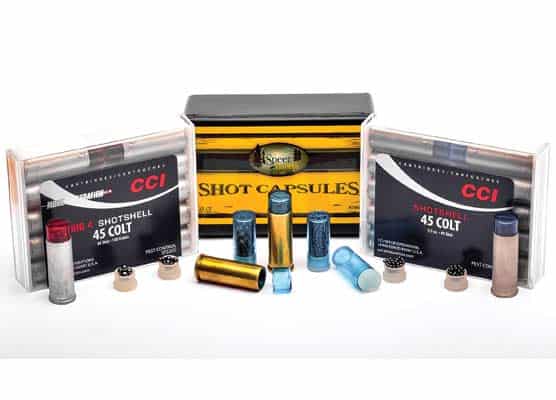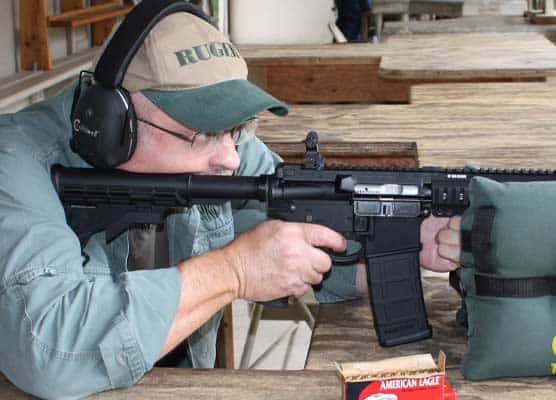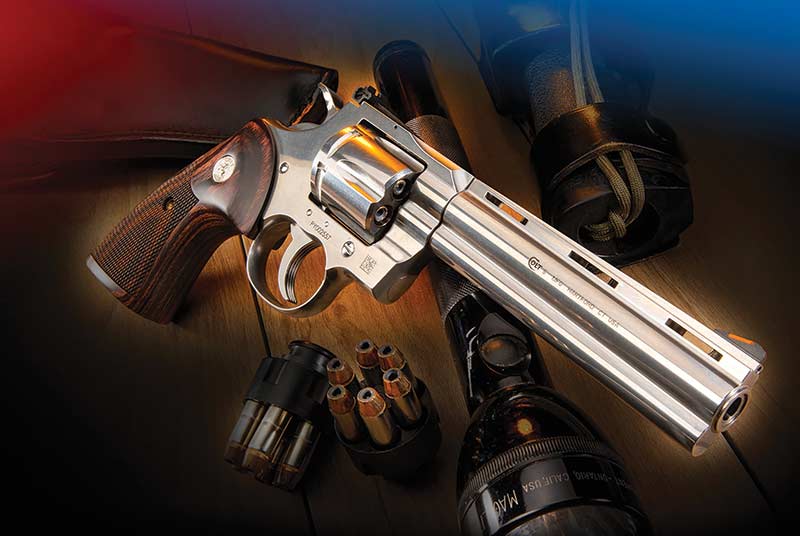A Civil Matter
Allen & Wheelock .44 "Lipfire" Revolver
If Dirty Harry had been busting heads in the 1860s, he likely would have been famous for packing an A&W instead of an S&W. This Allen and Wheelock .44 “Lipfire Army” certainly made any “punks” in the old days feeling not so lucky. It bears the characteristics making the S&W Model 29 famous later — a large-frame, 6-shot, .44 caliber cylinder with a long barrel and serious style.
Lipfire is a unique development of the rim-fire cartridge. Instead of having a primer system running the circumference of the cartridge, there is a very small portion of the cartridge case rimmed. These “lips” would line up with a cylinder notch in the cylinder and align with the hammer.
Anyone packing a percussion pistol at the time would have dropped it in two seconds for a chance to carry one of these, if ammo availability was not a concern. Being able to stuff a cartridge versus packing a cylinder with powder during the Civil War would have been a huge advantage, especially when delivering a similar — if not better — payload. Out of the 250 or so Lipfires produced, many had been noted to have been purchased by Union soldiers for action during the Civil War, although the US arsenal never officially purchased these for the war.
Interestingly, Allen and Wheelock could have possibly been a long-term builder of fine firearms had they not tangled with Smith &Wesson. Smith & Wesson had exclusive rights to a patent protecting the development of firearms with a bored-through cylinder. In 1863, Rollin White, the patent holder, had won his lawsuit against Allen and Wheelock. This ceased production of Allen and Wheelock’s cartridge pistols and eventually led to them going out of business for good.
While patents and lawsuits involving gun development rightfully protect the builders of great inventions, like the bored-through cylinder, could you imagine how having a consistent working cartridge revolver like this Lipfire would have impacted the Civil War, Las Cuevas War or any of the early Indian Wars? Only theory, hopes and wishes could tell.
Dylan is a Certified Firearms Appraiser doing business as “Old Arms of Idaho, LLC.” For more info: https://www.oldarmsofidaho.com/
, Ph: (208) 602-6027.


